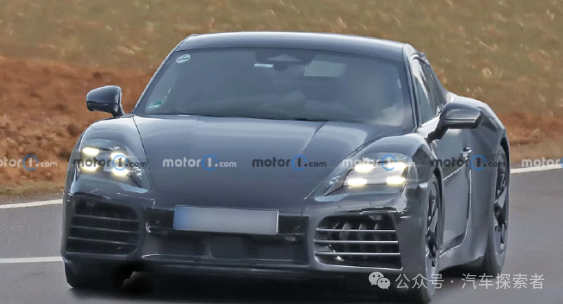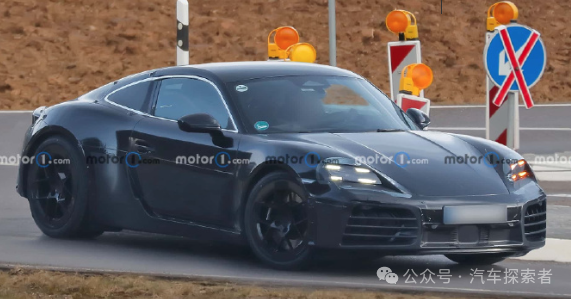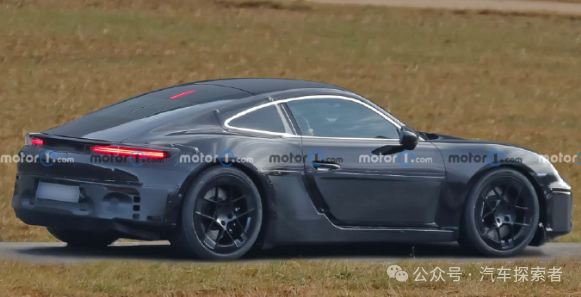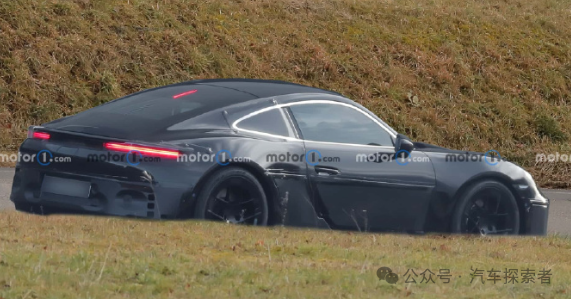
Porsche has experienced a sharp decline in sales recently, raising questions about the brand’s future. In response to this downturn, Porsche is launching its new 718 Electric version starting at $450,000. The electric vehicle market is rapidly expanding, and Porsche aims to position itself among the leaders in this segment. However, the question remains: will the 718 Electric model be the lifebuoy for a floundering brand or a missed opportunity?

Following the global trend towards sustainability and environmental considerations, many automakers are pivoting towards electric vehicles (EVs). Porsche, known for its high-performance gas-powered vehicles, is betting on the electric shift. With growing consumer demand for eco-friendly alternatives, the company has decided to launch the 718 Electric model as part of its ambitious strategy.
The Porsche 718 Electric is touted to include advanced features and innovations vital for competing in the crowded electric vehicle space. Designed to appeal to luxury car enthusiasts, it will offer the brand’s signature high performance along with environmentally friendly credentials. But with a starting price of $450,000, the question remains whether enough consumers will be willing to invest in this model.

Industry analysts are skeptical about the 718 Electric’s potential success. The luxury electric vehicle market is not just about performance; it’s also heavily driven by brand perception, technology innovations, and customer service. Rivals like Tesla and Lucid Motors have already established a foothold in the EV sector, presenting a challenging landscape for traditional brands like Porsche.
Porsche must address several challenges if the 718 Electric is to achieve considerable sales numbers. First, they need to reassure customers about the reliability and longevity of battery technologies. Concerns regarding charging infrastructure and battery sustainability must also be addressed to convert potential buyers into purchasers.
Moreover, Porsche has consistently marketed itself as a performance brand. Therefore, it must ensure that the 718 Electric delivers on the torque, acceleration, and handling that customers expect from its gas-powered line-up.
The luxury vehicle market is perceived as a more cautious segment regarding adopting electric vehicles. Traditional luxury buyers often seek an emotional connection with their automobiles. Porsche will need to create marketing narratives that resonate with these consumers to encourage the shift from gas to electric.

Furthermore, Porsche’s strategy should also consider the growing trend of online vehicle purchasing. Understanding consumer behavior in this realm, alongside identifying the need for the physical dealership experience, will be vital in creating a successful sales model for the 718 Electric and future vehicles.
As the electric car market continues to expand, the investments made by Porsche in the 718 Electric could be a turning point for its brand. However, the success of this model also hinges on external factors, including government regulations, energy prices, and the availability of charging stations across regions. If these elements align well with Porsche’s offerings, the 718 Electric could potentially rejuvenate the brand’s image and enhance its sales figures.
In conclusion, the launch of the 718 Electric starting at $450,000 poses both opportunities and challenges. While it may help Porsche pivot towards a more sustainable future, it remains uncertain whether this model will resonate with buyers the same way its gas counterparts did in the past. Porsche’s careful navigation of these waters will determine whether the 718 Electric becomes a technological beacon or simply another choice in the already competitive luxury electric vehicle market.






